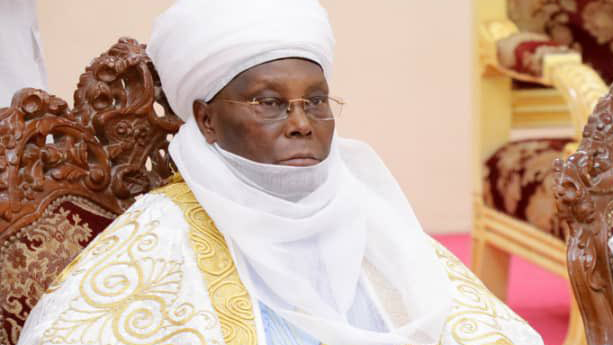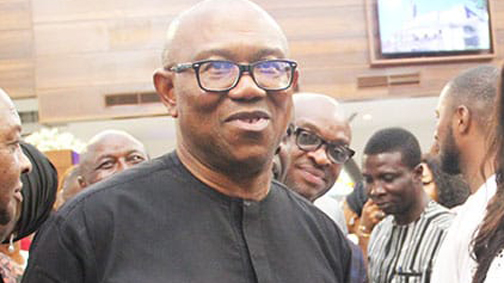
Obi accuses INEC of bias, impartiality over move to dismiss petition against Tinubu
Presidential candidate of the Peoples Democratic Party (PDP), Atiku Abubakar, has said he is not like the President-elect, Bola Tinubu, whose candidacy is embroiled in controversies, a reason he has been able to run for the office of the President since 1993.
This was in response, yesterday, to Tinubu and the All Progressives Congress’ (APC) reply to his petition challenging the process and outcome of the February 25 presidential election.
According to the former vice president, he, unlike his main rival, Tinubu, is unencumbered by controversies of identity and education, among other scandals.
Tinubu was declared winner of the poll with 8,794,726 votes. Abubakar polled 6,984,520 votes, while Peter Obi of the Labour Party (LP), came third with 6,101,533 votes.
In the petition marked CA/PEPC/05/2023, Atiku and the PDP raised several claims, including the allegation that Tinubu was not qualified to contest the election.
In a preliminary objection opposing the petition, Tinubu described the former vice president as a serial loser who has “been consistently contesting and losing successive presidential elections in Nigeria since 1993, whether at the party primary election level or at the general election.”
But while responding to Tinubu, Atiku admitted that he has been contesting presidential elections since 1993, but he has “a drug-free record”.
Atiku said: “In response to paragraph 8(iv) of the second respondent’s reply, the first petitioner, unlike the second respondent, has consistently been contesting presidential elections, given the first petitioner’s drug-free record, and has never had controversy surrounding his age, circumstances of his birth, state of origin, gender, educational qualification, health status, working career, and citizenship, all issues bordering on constitutional qualification to contest for the office of the President of the Federal Republic of Nigeria.”
Atiku said his own identity, comprising age, state of origin and educational qualifications have never been in dispute like those of the second respondent, insisting that Tinubu is constitutionally disabled from contesting for the office of President.
Among others, Atiku alleged that Tinubu is unfit to lead Nigeria, having been indicted for drug-related offences in the United States of America (USA) and made to forfeit $460,000 as a compromise agreement.
His lead counsel, Chief Chris Uche, justified why the declaration of Tinubu as President-elect cannot stand, adding that against the law, “Tinubu holds dual citizenship of Nigeria and Guinea, having voluntarily acquired the citizenship of the Republic of Guinea.”
Similarly, Atiku accused Tinubu of not disclosing facts of his constitutional qualifications in his Form EC9 submitted to the Independent National Electoral Commission (INEC), contrary to the provisions of the law.
The petitioner while admitting that Tinubu may be a “Titan and a Maestro”, however, said the “President-elect is certainly not a titan and maestro in national stature but in controversies such as age, state of origin, identity, educational qualifications represented by certificates obtained from universities and colleges.”
Apparently reacting to Tinubu’s response in which he described Atiku as a serial election loser, the PDP flag-bearer said Tinubu is a giant in forfeiture, drug-related offences and failure to disclose dual nationality to INEC.
Justifying his request for the annulment of the declaration of Tinubu as President-elect, Atiku said Tinubu and APC never won majority of the lawful votes cast in the February 25 presidential poll.
Among others, the PDP presidential candidate maintained that Tinubu failed part of the constitutional requirements, having failed to secure 25 per cent of the votes cast in the Federal Capital Territory (FCT), Abuja, as constitutionally required.
Rather than addressing the issues raised against him and the disputed election, Atiku said Tinubu deliberately chose not to answer points of substance in the petition and opted for extraneous facts, contradictory, evasive, speculative and vague assertions.
In his own response, Obi and his party, LP, have accused INEC of impartiality in the case they filed at the Presidential Election Petition Court (PEPC) in Abuja. They said the electoral body in its preliminary objection to their petition challenging flawed election processes, was not only biased, but in clear support of Tinubu.

Obi stated this in his reply to INEC’s preliminary objection against his petition. In the reply, Obi clearly took a swipe at INEC, accusing it of forgetting its role as an impartial umpire.
“INEC, forgetting its role as an electoral umpire, gave a notice of preliminary objection to challenge the alleged incompetence of the petition.
“The global best practices for electoral umpires in national elections is that an electoral umpire must avoid creating the impression that it has no respect for neutrality in an electoral contest between candidates,” Obi stated.
Obi’s legal team further contended that previous rulings and decisions of the Court of Appeal repeatedly admonished INEC to remain neutral in electoral proceedings, adding that it amounts to “embarrassment” for INEC to “adorn the garb of a contestant” in an election it conducted.
The petitioners, however, provided complete answers to the misconceived Notice of Preliminary Objection by INEC.
INEC in its objection filed by A.B Mahmoud, had disagreed with Obi’s assertion that the presidential election results ought to be transmitted electronically through the Bimodal Voter Accreditation System (BVAS) machine to a public result viewing portal known as the IReV.
INEC had also countered Obi’s submission that Tinubu, having not scored 25 per cent of votes cast in FCT, does not qualify to be declared winner of the polls in line with Section 134 of the 1999 Constitution.
The petitioners stated the fact that in FCT, Obi scored 281,717 votes to defeat Tinubu and Atiku Abubakar who had 90,902 and 74,199 votes, respectively (less than 25 per cent).
But INEC’s lawyer, Abubakar Mahmoud, had told the court that “FCT has no special constitutional status over and above the other 36 states of the federation to require a candidate in the presidential election to obtain at least 25 per cent of the votes cast in the FCT before being declared winner of the presidential election.”
In response to INEC’s argument that 25 per cent percent votes from FCT is not a requirement in the 2023 presidential election, Obi’s team maintained that the electoral umpire’s contention is “not true” and that the 1999 Constitution makes it mandatory.
The electoral umpire admitted in its reply to Obi’s petition that while it is true that collation officers are required to ascertain that the number of accredited voters match the number captured in the BVAS and that the votes of parties correspond with the result electronically transmitted directly from the polling units before collation of results, however, its collation officers are allowed by law to use INEC’s copy of the results from the polling unit in the event that no results have been electronically transmitted from a polling unit.
“It is not true that INEC compared the results of the election with any hard copies and counterpart copies issued to Nigeria Police and the political party agents as claimed in paragraph 73 of the first respondent’s (INEC) reply,” Obi’s team submitted.
Obi and LP further argued that INEC’s reply to their petition in its entirety is without merit and ought to be discountenanced.



